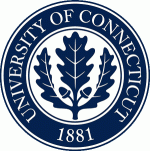Aaron Cooke, a 2018 PhD graduate of the UConn Department of Economics, recently became the Chief Economist for Macroeconomic Policy at the Council of Economic Advisers (CEA).
The CEA, an agency within the Executive Office of the President, is charged with offering the President objective economic advice on the formulation of both domestic and international economic policy.
Aaron earned his PhD degree from the Department of Economics in 2018, specializing in macroeconomics and public policy. His PhD dissertation, “Three Essays on Wealth and Income Inequality”, studied the causes of U.S. wealth and income inequality, and was completed under the supervision of Professor Kai Zhao.
Prior to joining the CEA, Aaron was an economist at the Office of Management and Budget.

